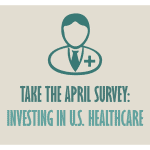The 19th Population Health Colloquium concluded March 20 in Philadelphia with more than 700 people in audience and an exciting lineup of speakers.
I was honored to participate alongside healthcare experts like Leana Wen, President of Planned Parenthood, Elisabeth Rosenthal, Editor-in-Chief of Kaiser Health News (no connection with Kaiser Permanente), and Karen DeSalvo, professor of population health University of Texas.
As a field, population health has experienced tremendous growth in recent years, helping employers, healthcare providers and local leaders develop stronger relationships and address major social issues, ultimately leading to healthier communities. Nearly two decades before the population health was recognized as vital to superior health outcomes, improved access and cost management, the PHC was highlighting its benefit for patients, families and the entire nation.
The annual program convened this year at the Lowes Philadelphia Hotel and brought together diverse stakeholders from around the world, including healthcare providers, payers, pharmaceutical leaders, technology companies, academics and government officials. It was a celebration and showcase of advances in technology, data analytics and precision medicine that enable practical healthcare solutions. Training and presentations introduced attendees to the latest in industry trends, best practices and innovative solutions.
Population health succeeds because improving the health of the whole community increases the well-being of all. It stresses the importance of prevention, the social determinants of health and wellness—themes that have only recently begun to receive the attention they deserve.
My talk focused on the structural perils of American medicine, from its fragmented delivery system, to its fee-for-service reimbursement system that rewards volume over clinical outcomes and the information technology systems left over from the last century. These shortcomings don’t just impede high-quality medical care, they result in hundreds of thousands of preventable deaths each year. They result in patients being priced out of the care they need and they’ve produced rising rates of physician dissatisfaction and depression.
On stage, I often worry my remarks will offend audience members who represent various legacy players within healthcare industry. And yet it’s often the people who work in the insurance or pharmaceutical fields who reach out to me after a conference to offer positive feedback—noting how important it is that someone give a voice to the problems they see each day. I’m encouraged by these remarks and deeply appreciative to those who take the time to share their thoughts.
Following my presentation, the two most frequent questions I received were:
1) When will meaningful change happen in healthcare?
2) Who will lead it?
To the first, I believe it will take another five to 10 years, although everyone in the healthcare industry needs to begin the change process now or risk being left behind. But my answer to the second offers a glimpse into what kinds of changes I think will be necessary. I posit that major purchasers of health insurance (like the business who insure 155 million Americans) are the only party with the clout to demand better medical care for patients. And at some point in the future, they will rally together and make change happen.
My hope is that those who lead change will heed the lessons of the 19th Population Health Colloquium. I can promise anyone who attends the program’s 20th installment next year will leave more educated, motivated and inspired. Population health remains poorly understood by many outside of the public health and policy arenas. Advancing it and implementing its tenets will be foundational to raising quality, improving access and lowering healthcare costs in the future.
In closing, I would like to thank David Nash, founding dean of the Jefferson College of Population Health (JCPH), for the invitation to speak and Melissa Horowitz, Senior Project Director, for making the three-day program so successful. Kudos to David and the team for highlighting what is needed and how best to translate population health’s possibility into practice.
Special thanks to Britney Lillya, photographer who captured this article’s cover photo.
* * *
Dr. Robert Pearl is the former CEO of The Permanente Medical Group, the nation’s largest physician group. He’s the bestselling author of “Mistreated: Why We Think We’re Getting Good Health Care–And Why We’re Usually Wrong” and a Stanford University professor. Follow him on Twitter @RobertPearlMD.






